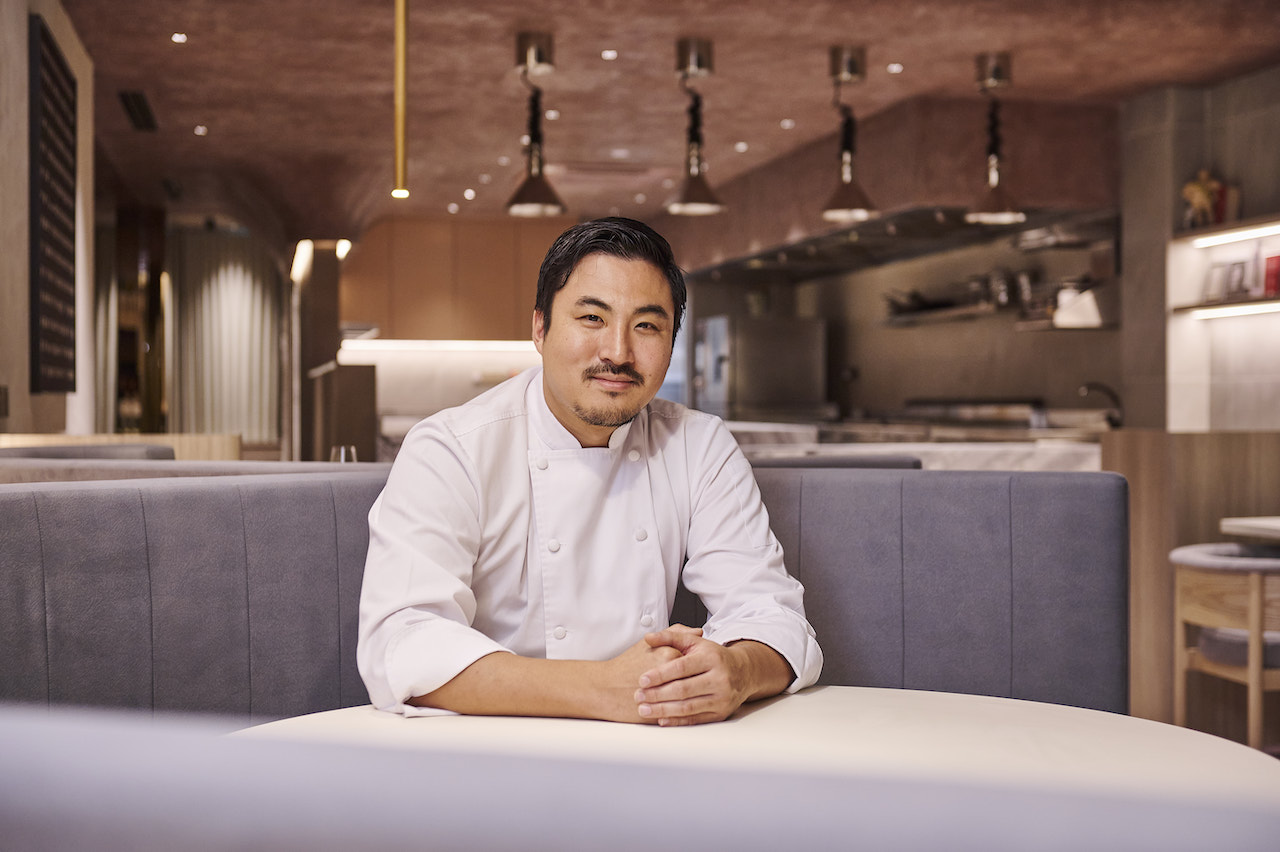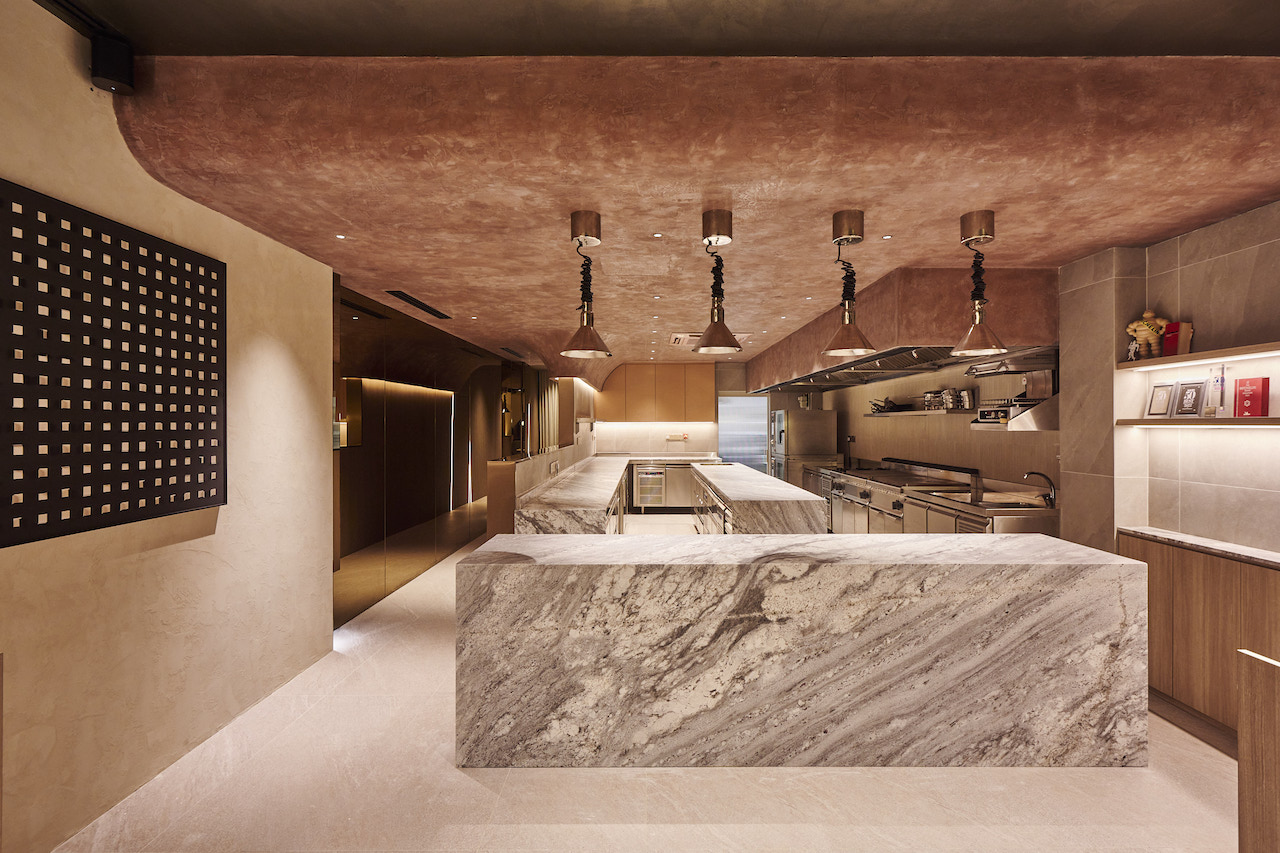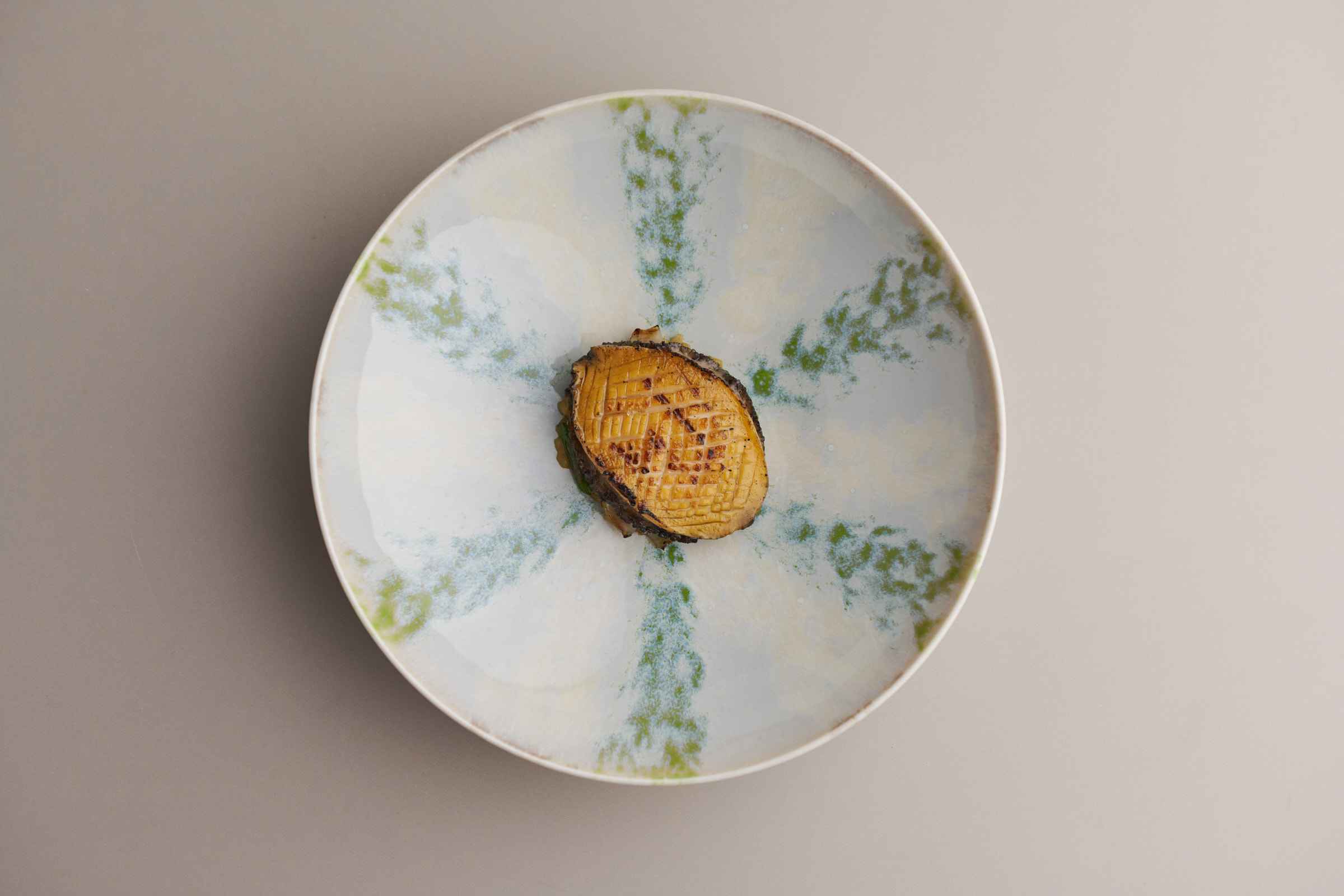Chef Sun Kim proves that Meta is a business that stands the test of time. His restaurant at 9 Mohamed Sultan has been promoted to 2 Michelin stars with the latest announcement by the Michelin Guide Singapore 2024 on 25 June. There are currently 51 Michelin starred restaurants in Singapore.
When Sun established Meta (short for ‘metamorphosis’) on Keong Saik Road in 2015, few knew what to expect from his innovative concept. It subsequently received one Michelin star about eight years ago. Currently the popular restaurant ranks no. 28 on Asia’s 50 Best Restaurants list and no. 95 in The World’s 50 Best Restaurants 2024.
Reflecting on his critics from Meta’s early days, Sun acknowledges, “It takes time for a young chef and newly opened restaurant to find their direction. I had to work really hard.” He adds that with perseverance and growth, Meta evolved along the way. To prove his detractors wrong, he focused on dedication to his craft, leadership and business acumen, ultimately achieving the success he enjoys today.

Today Sun stands as a pioneer in modern Korean cuisine in Singapore. After the relocation, the restaurant’s cuisine is even more refined now, complemented by professional and friendly service. “Meta still retains the comfortable vibe of visiting someone’s home,” he remarks.
Sun has nurtured a brigade of chefs who have ventured out to set up their own successful establishments, including Louis Han (Nae:um and Guum) and Kevin Wong (Seroja), who now helm their own own Michelin-starred restaurants. In 2023, Sun also partnered with Chef Mano Thevar to open a new South Indian-Korean concept called Tambi.

While the chef initially experimented with modern Asian flavours, he transitioned to incorporating more Korean produce and authentic flavours around five years ago. Sun explains, “We are not trying to be a Korean restaurant. As a Korean myself, I understand the flavours and infuse them into my cuisine.”
“Over time we have evolved and improved. I’m happy with the dishes I create now,” he says adding that they truly reflect his culinary identity. “And I have access to produce from around the world.” While he prioritises seasonal Korean produce, he also incorporates Japanese and French ingredients like white asparagus. This expanded access fuels his creativity.
“Compared to nine years ago, we can now get a lot more Korean produce. Last time, abalone was brought in from Australia and Japan. Besides Jeju abalone, we now procure various seafood items from Korea such as amadai (from Jeju island), as well as nodoguro and octopus.” He also brings in seasonal Korean vegetables like sprouts and bamboo shoot.

While Meta frequently updates its menu, one dish that remains a specialty since its inception is the abalone creation. “Every time I change the menu, I try to give it a twist using different ingredients or techniques. Currently, we prepare abalone porridge using three varieties of seaweed and three different types of rice.” He also uses abalone liver for its rich umami flavour. “We stack the abalone with Korean seaweed for one night and then steam it.” The chef brushes the abalone with butter and grill it for a smoky finish. Its tenderness and smoky aroma have made it a signature Meta dish, each rendition slightly unique.
As for the popularity of Korean restaurants in Singapore, Sun comments, “During the pandemic, people were watching a lot of famous Korean dramas because we had nothing to do. And people were curious about the cuisine, and tried to understand the eating culture. Visually it looks nice and you want to understand the flavours. The pandemic definitely played a very big part in making Korean cuisine famous in Singapore.”
He adds, “I’m very happy to see new Korean restaurants opening here. Now there are new types of high-end Korean barbecues too. What we’re missing in Singapore now is very traditional Korean food like royal cuisine or temple cuisine. I think there will be a market for that.”
____
Text by: Amy Van
